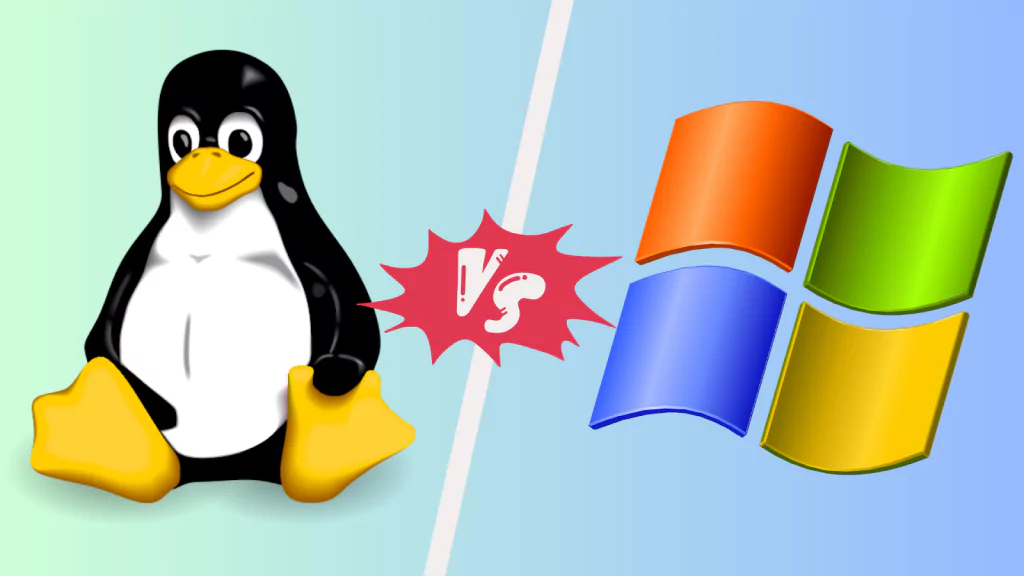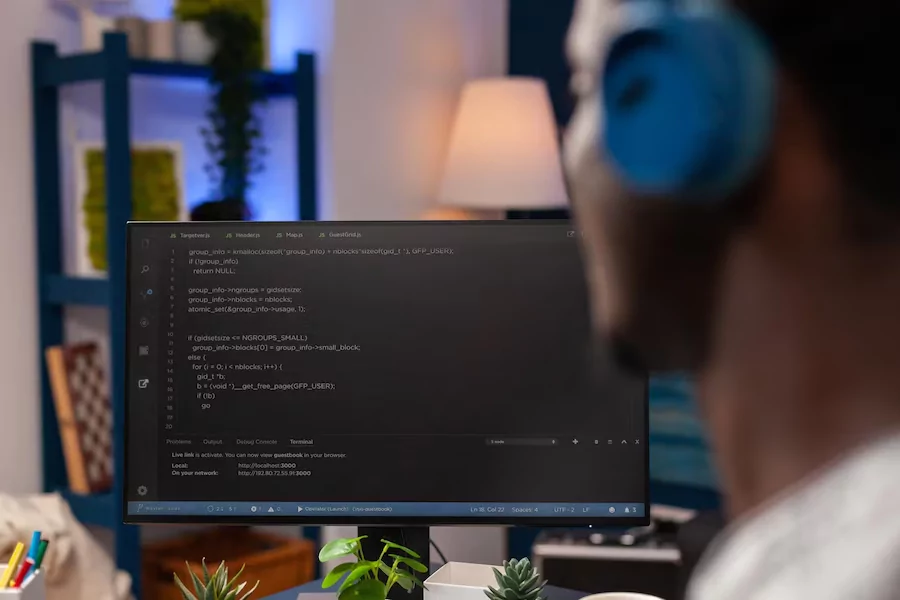Bugs are a coder’s worst nightmare. For Python coder Thomas Mason, they’ve become too common on the Windows version of his work platform, Jupyter Notebook. Now, he’s thinking about a switch to Linux. This isn’t just Mason’s problem – it’s a question many coders face. Is Linux, known for fewer bugs and being coder-friendly, better than Windows for programming? While Mason isn’t a Linux expert, his experience might give us some answers to this ongoing question in the coding world.

✅ AI Essay Writer ✅ AI Detector ✅ Plagchecker ✅ Paraphraser
✅ Summarizer ✅ Citation Generator

Key Takeaways:
- Linux’s stability and user control make it a preferred choice for coding, negating frequent system resets required with other OS.
- Linux knowledge is vital for professional programmers, but it’s one piece of a diverse skill set that includes user, hardware, and network management.
- Effective programming can be achieved on any platform, be it Linux, Windows, or Mac OS, depending on project needs and personal preference.
- Choosing a user-friendly Linux distribution can ease the transition for developers, with Linux’s open-source nature and strong security making it attractive.
Programming Pros: Linux Favored for Stability and Learning Potential
When Python programmer Thomas Mason voiced his intention to switch to Linux from Windows, it sparked a flurry of supportive responses from the programming community. Many programmers seem to agree that understanding Linux is more than just a solution to Mason’s bug troubles.
“The more you dabble with Linux, the more you’ll learn,” one programmer explained, asserting that Linux offers a more reliable platform for coding, debugging, and testing. Many also highlighted Linux’s flexible, user-controlled environment, arguing that it negates the need to reset the system every 1-2 years, a common occurrence with Windows and Mac OS. Moreover, Linux’s powerful package management system was flagged as a selling point, eliminating the need to use a browser to update or download software.
Going Beyond Coding: A Wider Skill Set Needed
While Linux is valuable when learning to code, the community further clarified that being a professional programmer requires a more extensive set of skills. “Linux is just one of them,” one respondent said. A professional should know about user management, hardware management, network management, and more.
Linux vs. Windows: A Case for Diversity
While the majority favored Linux, some programmers offered a more balanced view. One coder pointed out that, with modern tools and environments, effective programming is possible on any system – be it Linux, Windows, or Mac OS. They emphasized that Linux knowledge undoubtedly provides an edge but might not be a mandatory transition.
For clarity, consider the following comparison of Linux and Windows:
| Attribute | Linux | Windows |
| Cost | Free and open-source | Paid, with exceptions for certain editions |
| Flexibility | Highly customizable, allowing the user to control most aspects of the system | Less flexible with a more structured user interface |
| Security | Generally considered more secure due to its open-source nature | Vulnerable to more types of malware, but has strong security measures |
| Software Support | Excels with server and programming software, but lacks in proprietary software support | Broad support for both proprietary and mainstream software |
| User-Friendliness | Depends on the distribution; may require a learning curve | Known for being user-friendly with a graphical user interface |

Choosing the Right Linux: User-friendly Distributions Recommended
Selecting the right Linux system for you can be an important factor in your transition. The community recommended opting for user-friendly distributions like Ubuntu, Fedora, or Linux Mint, which are designed to make the transition easier, especially for Windows users.
Here’s why many believe Linux to be a superior choice for developers:
- Open-source Nature: Linux is free and open-source, allowing for immense customization and control over your system.
- Security: Linux systems are generally considered to be more secure than their counterparts.
- Powerful Package Management: Linux systems offer robust package management systems that simplify software installation and update processes.
- Stable and Reliable: Linux systems are known for their stability, reducing the need for regular resets that are common with other operating systems.
- Strong Community Support: Linux has a supportive and active community, ready to assist with queries or issues.
- Server Support: Linux is often the default choice for servers, making Linux skills valuable for server-side development.
Remember, becoming a proficient programmer goes beyond just mastering an operating system. It requires a diverse skill set, adaptability, and a deep understanding of your chosen programming languages and tools.
FAQ
What are the main advantages of using Linux over Windows for programming?
Linux tends to be a preferred choice for programming due to its open-source nature, giving users a high degree of control over their systems. It’s highly customizable, secure, and stable, with a powerful package management system and strong community support. In addition, Linux is often the default choice for servers, which makes Linux skills particularly valuable for server-side development.
Are there situations where Windows might be a better choice for coding than Linux?
Yes, there are cases where Windows could be a preferred choice. For instance, if you’re working primarily with Microsoft technologies, or developing software that will be deployed on a Windows environment, it might make more sense to stick with Windows. Furthermore, Windows also has broad support for mainstream and proprietary software, which can be beneficial depending on your specific use-case or project requirements.
I’m new to programming. Should I start with Linux or Windows?
The choice between Linux and Windows often comes down to personal preference and the specific requirements of what you’re planning to code. Both have their strengths and can be effective platforms for development. If you’re just starting out, you might find Windows to be more user-friendly. However, Linux distributions like Ubuntu, Fedora, or Linux Mint have been designed with ease of use in mind, and the open-source nature of Linux can provide a beneficial learning experience. As you advance in your programming career, being adaptable and capable of working on different operating systems will be an invaluable skill.
Related stories:
Demystifying Programming — Yes, You Can Learn It Without Prior Coding Experience
Java Language Evolution: Record Patterns Supercharge Expressive Coding
C++ for Beginners: Top Learning Resources Explained
Follow us on Reddit for more insights and updates.





Comments (0)
Welcome to A*Help comments!
We’re all about debate and discussion at A*Help.
We value the diverse opinions of users, so you may find points of view that you don’t agree with. And that’s cool. However, there are certain things we’re not OK with: attempts to manipulate our data in any way, for example, or the posting of discriminative, offensive, hateful, or disparaging material.